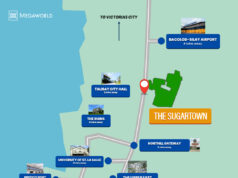CLARK FREEPORT – The so-called Makabayan bloc in Congress cited yesterday at least four deeds and misdeeds that put the blame on the current “severe rice crisis” on the shoulders of the Duterte administration.
“We denounce his (Duterte’) anti-Filipino farmer policies, particularly the National Food Authority’s (NFA) nearly zero palay procurement, which allowed ruthless rice traders to dictate high prices,“ the bloc said in a joint statement through Anakpawis Partylist Rep. Ariel Casilao.
The bloc also decried Sen. Cynthia Villar’s call to abolish NFA, noting that “the NFA’s deliberate withdrawal from the market that left the field to profiteering rice traders, highlights the essential role it plays in keeping the retail price of rice low.”
“Instead of abolition of NFA, we challenge Pres. Duterte to decisively boost its capacity to buy palay at P20 per kilo on a massive scale as the county enters harvest season, and make aff ordable rice available to retailers throughout the country,” the statement said.
It stressed that “substantially raising the subsidy and support to Filipino farmer, not the abolition of NFA and rice importation, is an important solution to the rice crisis and the problem of food self-sufficiency.”
The bloc said Duterte “is primarily responsible for the severe rice crisis under his watch. The neoliberal policies his administration implemented works against Filipino farmers and consumers and favors private and bureaucrat rice importers and the rice cartel.”
Crisis trigger
The Makabayan bloc cited at least fi ve ways in which the Duterte administration triggered rice crisis.
“The NFA, which is under Pres. Duterte’s control, implemented a near-zero local procurement policy. This is the result of Duterte’s policy of decoupling the NFA, specifically removing its function as major rice distributor and limiting the NFA mandate to maintenance of buff er stock, as stated in the Philippine Development Plan 2017-2022,“ the bloc’s statement said.
It noted that “the NFA was given a budget of P5.1 billion for 2017 for its Food Security Program and P7 billion in 2008 for its Buff er Stocking Program. But in 2017, it procured a measly 28,344 metric tons or about 0.001% of the 19.2 million metric tons total production. In January 2018, it procured a mere 334 metric tons.”
Second, the Duterte administration “has kept the NFA buying price at P17 per kilogram, a price level that was set in 2009 and has long been outstripped by infl ation,“ the statement said.
“The low procurement price discourages Filipino farmers from selling their produce to NFA. Thus, big commercial traders and cartels were able to procure almost all of the 19.2 million metric tons produced in 2017,” it said.
The bloc noted that still, farmers who fell victims to underpricing by unscrupulous landlords and traders from various provinces have complained of NFA’s absence from the market. They are constrained to sell to private traders at give-away farm gate prices such as P12 per kilo during the rainy season.”
It lamented that “ultimately, the national stock has become a private stock, controlled by cartel of big landlords and traders manipulating supply and prices.”
Third, the administration also “narrowed the options and protracted the debate on modes of rice importation – whether through the private sector or government- to-government – delaying the entry of imported rice and practically giving the go-signal to traders to jack up prices,” the statement noted.
“Duterte and his offi cials deliberately set aside the option or solution to raise the NFA buying price and volume of local procurement,“ the statement said.
It said the President “violated and continues to violate the mandate of the NFA, which is to ensure national food security and stabilize supply and prices of staple cereals both in the farm and consumer levels, as well as its mission to ensure reasonable rate of return to Filipino farmers, provide adequate supply and affordable rice and corn for the country, and vision for a nationwide sustainable mechanism for ensuring the stabilization of the prices and supply of rice and corn while increasing the income of Filipino farmers.”
Flawed concept
The bloc accused the Duterte administration of “adopting a flawed concept of food security, that limited itself to “availability, accessibility and utilization” of rice, thus, its total reliance to importation to fill up the gap between the supply and consumption.”
“We, at Makabayan, assert that food security is based on self-sufficiency, and the government should secure the national stock of rice by procuring it at farm gate prices advantageous to poor farmers, and selling it at low retail prices to benefi t poor consuming public,” the statement said.
The Makabayan bloc also urged “critical measures” in the face of the rice crisis.
It urged the NFA to “immediately increase its buying price from the current P17 per kilo to at least P20 per kilo.
The P7 billion subsidy for 2018 could procure 350,000 metric tons at P20 per kilo of palay, to result more than 4.5 million bags of milled rice.
Make locally-procured NFA rice available to poor consumers at an aff ordable price in retail outlets throughout the country.”
“Instead of abolishing the NFA, its budget for local palay procurement must be raised substantially,” it also said.
The bloc also urged the imposition of “rice price control in Zamboanga and other areas to immediately arrest rice cartel manipulation.”
It also urged the government to “increase rice self-sufficiency target from 95 to 100 percent, and break out from neoliberal subservience, as dictated by the World Trade Organization – Agreement on Agriculture, defend Philippine rice sector from massive importation as being further pushed by the Rice Imports Tariffi cation bill, and uphold Genuine Agrarian Reform and Rural Development in the country.”
“Ultimately, we urge the people, principally the poor sectors, to protest the failure of the Duterte administration and demand full food security based on self-sufficiency in the country,” the bloc said.




